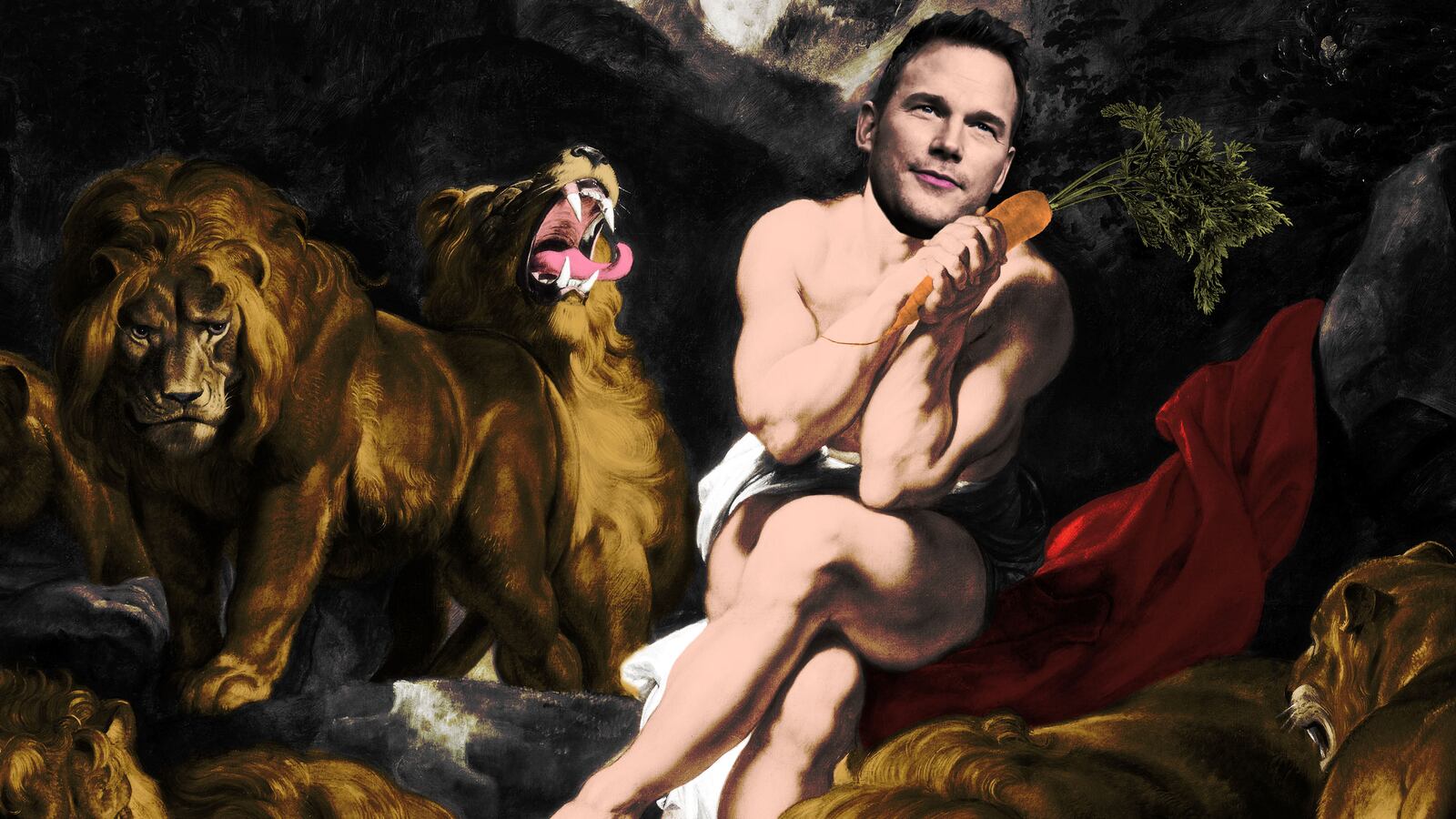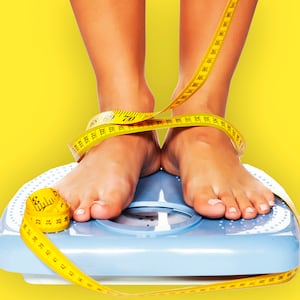Welcome to Debunker, a weekly breakdown of misleading (and sometimes flat-out wrong!) news from the worlds of science, health, and more—for Beast Inside members only.
The newly engaged Chris Pratt is no stranger to extreme diets.
When preparing for his lead role in 2014’s Guardians of the Galaxy, the Parks and Recreation star reportedly lost 60 pounds in six months by hiking up his caloric intake with a paleo-style diet and heavy workouts. He’s also a fan of intermittent fasting, which only allows you to eat at certain hours of the day.
But in early January, Pratt shot a video to discuss a new plan.
“OK, hi, Chris Pratt here,” the 39-year-old actor said in an Instagram Story. “Day three of the Daniel Fast, check it out, it’s 21 days of prayer and fasting.”
“It’s gonna coincide, also coincidentally, with the Lego Movie 2 junkets,” he added. “So by the time you see me, I’ll probably be hallucinating. Stay tuned.”
The Daniel Fast is based on the story of Daniel in the Old Testament, a prophet who allegedly refused the rich food and wine of the king’s court for 10 days, requesting only “pulses to eat and water to drink,” and emerged healthier and stronger than his counterparts.
“Pulse,” according to most modern interpretations of the fast, means “food grown from seed.” That means fruits, vegetables, nuts, seeds, and legumes, and some oils are also permitted during the fast, which, along with prayer, allegedly allows followers to “discover and grow in the vast interior life that’s inside of you... the kingdom of God that Jesus came to proclaim.” Everything else—meat, dairy, processed or fried food (including white flour and white rice), and any drink that’s not water—is forbidden. It’s quite similar to a vegan diet, other than the bans on processed food, fried food, sweeteners, and non-water beverages.
Pratt never explicitly claimed he was using the Daniel Fast to lose weight. But his faith-based pledge was quickly touted as another Chris Pratt “diet” in health magazines, where many Americans turn for nutritional advice. “Chris Pratt Started a 21-Day Diet Based on the Bible” People proclaimed. “Praise the Lord, Chris Pratt Is Going on a Bible Diet,” said Esquire.
And while doctors say that there’s likely nothing harmful about eating this way, it’s definitely not a long-term weight loss miracle.
“The problem in the weight reduction business is not losing weight, it’s sustaining after you lose it. This is not a way to sustain,” David Levitsky, a nutrition professor at Cornell University, told The Daily Beast.
Levitsky explained that if you were previously eating fried and processed foods, you’ll “without a doubt” lose weight in the short term. But as soon as those 21 days are over, he said, the weight will come right back.
“As you lose weight, you’re losing muscle mass,” he said, adding that “as you lose muscle mass, you decrease your metabolic rate. So if you go back to eating the same calories you did before you started the diet, but you’re at a low metabolic rate, you’re gonna gain that weight back pretty rapidly.” Representatives for Pratt did not respond to a request for comment.
Diane Vizthum, a dietician at Johns Hopkins, had a similarly grim outlook. While it’s possible that even someone who ate well before starting the regimen could lose weight during the fast, Vizthum told The Daily Beast, “Any change that you make in the short term like that to your diet is not going to produce long-term weight loss.”
“To have long-term weight loss, you need to make long-term change to your diet,” she added.
The Bible debunks weight loss claims, too. According to some translations of the Bible, the fast makes Daniel appear “healthier”—but in others, he becomes “fairer and fatter in flesh.”
Susan Gregory, one of the modern pioneers of the Daniel Fast, rejects the idea that it was ever intended to be a diet. “The Daniel Fast is not a diet. It's a spiritual excursion. I am not promoting the fast as diet, however it is a very healthy way to eat for the 21 days of the spiritual journey,” Gregory told The Daily Beast via email.
But the line between fasting and dieting is blurred even on Gregory’s website—where she markets her book, The Daniel Diet for Weight Loss: A Biblical Approach to Losing Weight and Keeping It Off, and promises that for those who go on the fast, “Cravings disappear. Your body undergoes a natural detox. The bondage of food and overeating are broken.”
When asked about the difference between a list of foods to eat for weight loss and a diet, Gregory argued that “The Daniel Fast for Weight Loss helps the readers honor their body as the temple of God, which is what the Bible teaches. It’s not a “diet book.” It’s about taking responsibility as the caretaker of the physical body by losing unhealthy pounds and developing a lifestyle of health.”
Elisabetta Politi, nutrition director for the Duke Diet and Fitness Center, isn’t sure that it would be possible to develop a “lifestyle of health” through this fast. The fast, she argued, is so restrictive that the average devotee would have trouble sticking to it.
“Chris Pratt might have a private chef that could cook him elaborate recipes and creative recipes that only use vegetables and grains and seeds because he can afford it—but when it comes to recommending this program to people that have to put together meals, I think it’s gonna be extremely hard,” Politi told The Daily Beast.
She also worried that if the fast was repeated, it could lead to nutrient deficiencies. “A vegan nutritionist or a chef could certainly come up with a well-balanced meal plan,” she said, “but someone who does not have a background in nutrition or food preparation might find it extremely challenging, and might end up eating a not well-balanced meal plan.”
But while many of the dietitians said that in the long term, they would be concerned about deficiencies in iron, zinc, and vitamin B12—the reason many vegans take supplements—Leah Groppo, a clinical dietician at Stanford Health Care, said there’s no real risk of deficiencies in just 21 days.
“Deficiencies happen over a long time,” Groppo told The Daily Beast, noting that it would take approximately a year to see adverse health effects. “For 21 days it’s totally fine.”
Dietitians did, however, take issue with the idea that the Daniel Fast could “detox” your body and free it from cravings. “Detoxification is done by the liver and the kidneys,” explained Nitin Ahuja, an assistant professor of clinical medicine at The University of Pennsylvania. “And I don’t think dietary restriction works to cleanse the body in any meaningful way.”
Groppo agreed. “I think that they’re trying to say that this is going to potentially change your mindset and your life,” Groppo added. “And I don’t think you can promise that with any diet.”







